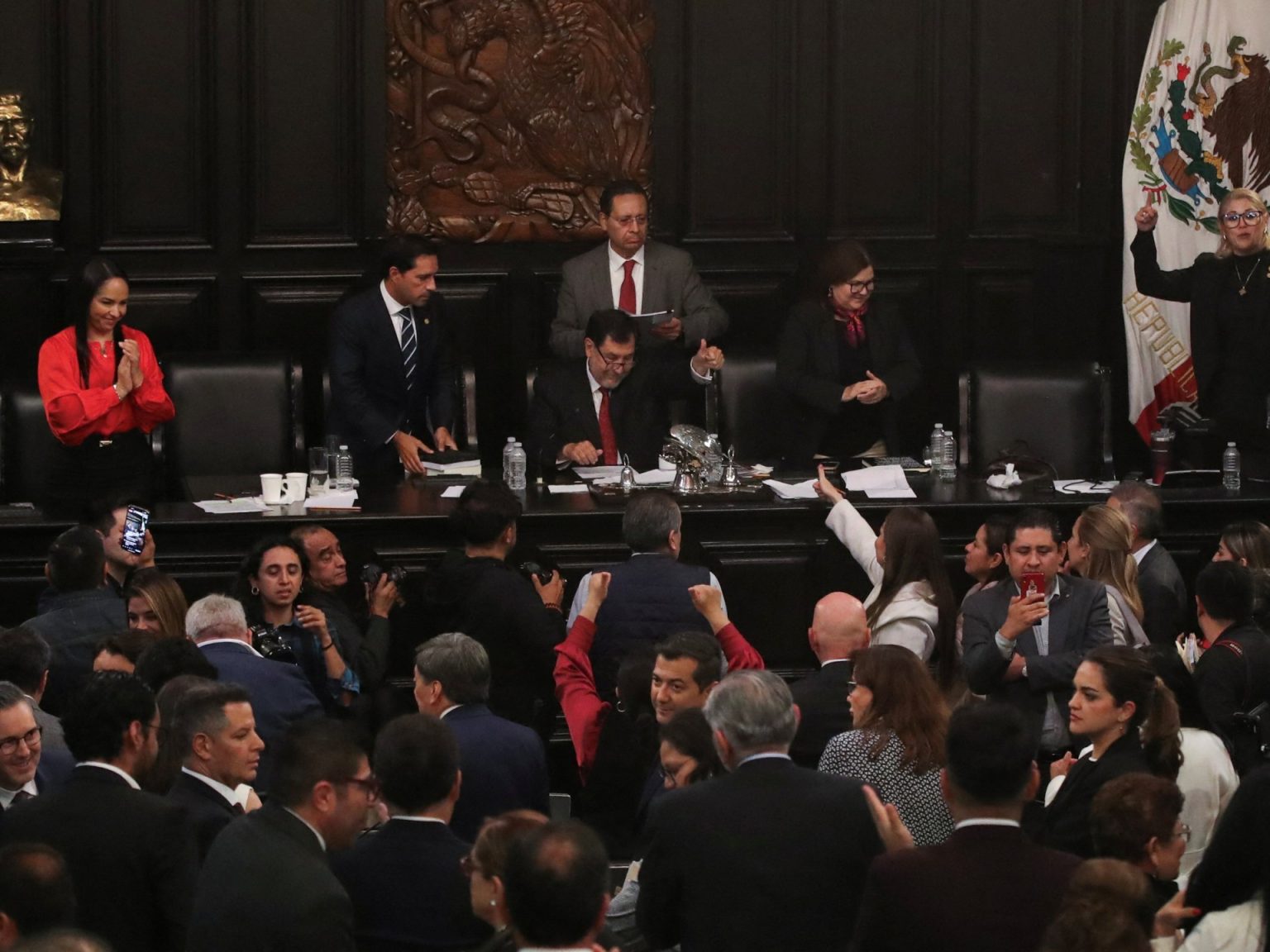Mexican senators have recently approved a controversial judicial overhaul put forth by President Andres Manuel Lopez Obrador, which will see judges elected by voters at all levels, including the Supreme Court. The reform also reduces the number of Supreme Court judges, shortens their terms, and removes certain requirements for qualifications. The measure was supported by the ruling Morena party and its allies, winning the supermajority vote needed to amend the constitution. Critics of the reform argue that it could jeopardize judicial independence by making judges more susceptible to pressure from criminal entities in a country where corruption is rampant.
Protests against the reform have been ongoing for weeks, with demonstrators expressing concerns about the potential impact on the judiciary and the system of checks and balances. During the Senate debate on the reform, protesters broke into the chamber, forcing lawmakers to move to a different location to continue their discussions. While President Lopez Obrador claims that the changes will help reduce corruption and ensure justice for all, opponents fear that the new system could be easily manipulated and controlled by those in power.
The reform has also raised concerns internationally, with countries like the United States and Canada expressing worries about the potential risks to Mexican democracy. US Ambassador Ken Salazar warned that the changes could allow criminals to exploit politically motivated judges, posing a threat to the rule of law. The United Nations special rapporteur on the independence of judges and lawyers and Human Rights Watch have also criticized the overhaul, highlighting the importance of an independent judiciary in protecting human rights and preventing abuses of power.
The new system will allow for the popular election of over 6,500 judges, magistrates, and ministers, with elections scheduled for 2025 and 2027. Candidates for these positions will be nominated by different branches of the government before being vetted by a technical committee. Despite opposition from various sectors, the ruling coalition is expected to push the reform through at the state level, where they hold the majority. Once published in Mexico’s official gazette, the changes will take effect, fundamentally altering the country’s judicial system.
Critics argue that the high number of positions up for vote will make it challenging for citizens to be well-informed and participate meaningfully in the election process. Concerns about the potential for corruption, political interference, and inexperience among elected judges have been raised by opponents of the reform. The outcome of this debate and the implementation of the changes will likely have significant implications for Mexico’s legal system and the protection of human rights. As the country enters a new era of judicial governance, the impact of these reforms on the rule of law and democracy remains to be seen.













